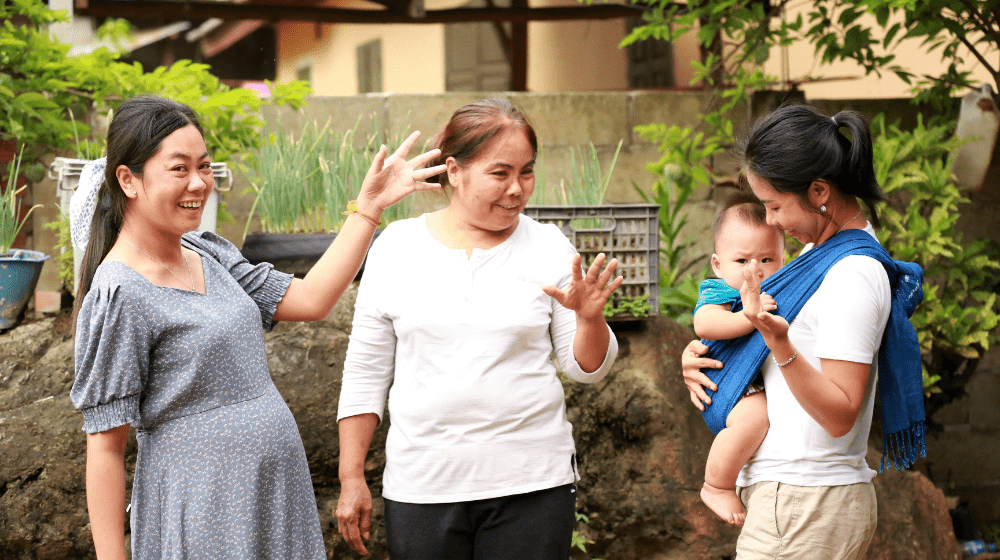28 August 2023, Vientiane, Lao PDR. The Ministry of Health of the Lao PDR, UNFPA, the Australian Government, and partners renewed their commitment to scale up efforts towards strengthening Maternal and Perinatal Death Surveillance and Response (MPDSR) during the opening ceremony of the Regional Capacity-Building Workshop.
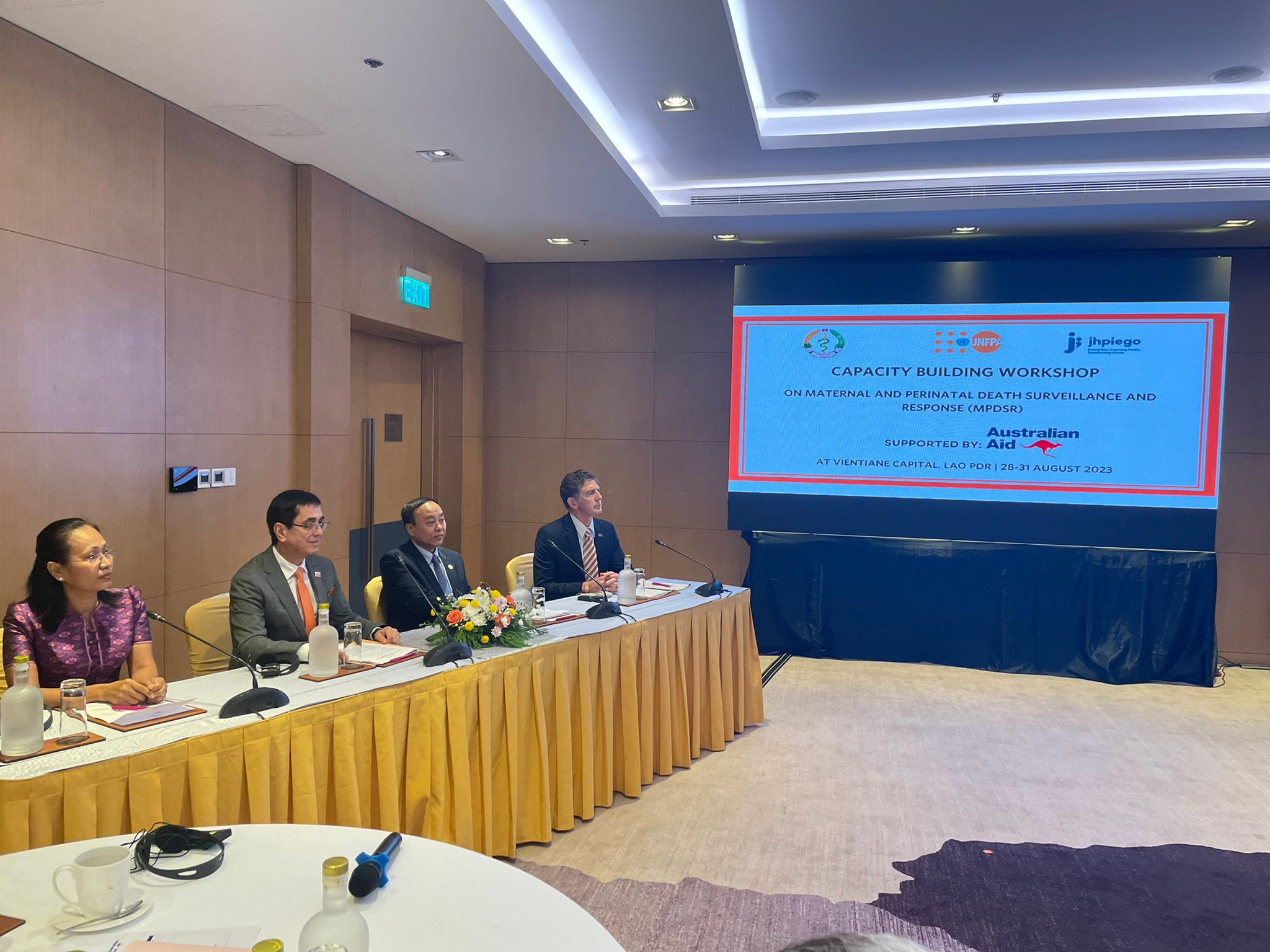
The Regional Workshop on MPDSR provides training to health care providers across countries in the Asia Pacific region. Topics include conducting well-founded maternal death reviews, generating lessons, forming recommendations on practical ways of averting maternal death and disability, and developing and implementing response plans.
According to “Trends in maternal mortality 2000 to 2020 estimates by WHO, UNICEF, UNFPA, World Bank Group and UNDESA/Population Division“, the estimated maternal mortality ratio (MMR) for Lao PDR is 126 per 100,000 live births. This means there are more than 200 maternal deaths every year. Each maternal death or long-term complication represents an individual tragedy for the woman, her partner, her children, and her extended family.
Although the maternal mortality ratio has dropped from 185 per 100,000 live births in 2015 to 126 in 2020, it is still high. A concerted effort by all stakeholders and more resources will be needed to achieve the Sustainable Development Goal (SDG) target of reducing the MMR to less than 70 per 100,000 live births by 2030.
Knowing the rate of maternal deaths is not enough to prevent the deaths. Knowing more about the women and their conditions, as well as, remedial and preventive factors is needed to prevent maternal deaths and lower the MMR.
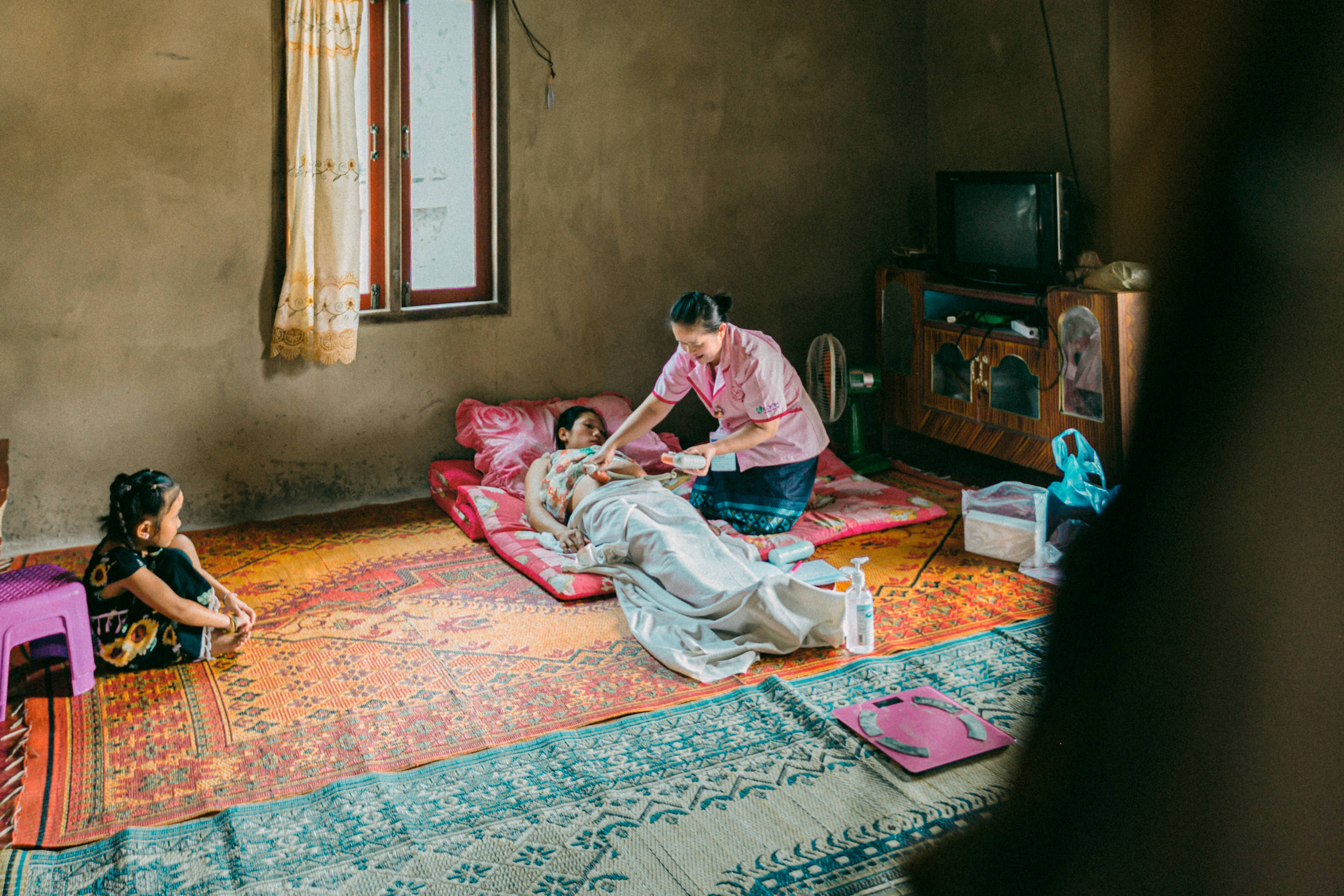
Each maternal death or case of life-threatening complications has a story to tell. These stories can provide indications on practical ways of reducing maternal deaths and complications.
This is the essence and rationale behind ensuring a well-functioning MPDSR. To avert maternal death and disability, the MPDSR will support the health system to conduct well-founded maternal death reviews, in order to develop recommendations for practical actions. These actions will include investments in capacity building and medical technologies.
The medical technology to prevent almost all deaths from common obstetric complications has been available for more than 60 years and is relatively simple and inexpensive. Many of the common obstetric complications can be managed before they become emergencies, and almost all can be treated even if they do become emergencies.
Part of a regional level effort to strengthen health systems of high priority countries in the Asia Pacific region, this four-day capacity-building workshop on MPDSR aims to train health staff personnel, as core trainers, from different departments of the Ministry of Health in Laos with the participation of a delegation from Cambodia. The workshop builds on continuous efforts to orient the Ministry of Health on the latest MPDSR data collection, analysis and systems strengthening guidelines, and receive training on the roll-out and implementation of the MPDSR system at a national and subnational level with support from Australia. The MPDSR workshop is based on the Integrated MPDSR Capacity Building Package - jointly developed by USAID/Momentum, WHO, UNFPA, UNICEF and launched in late 2022. The workshop reflects the latest evidence, guidelines and best practices on MPDSR capacity building, and covers all areas of support identified in the MPDSR Situational Analyses reports for each country.
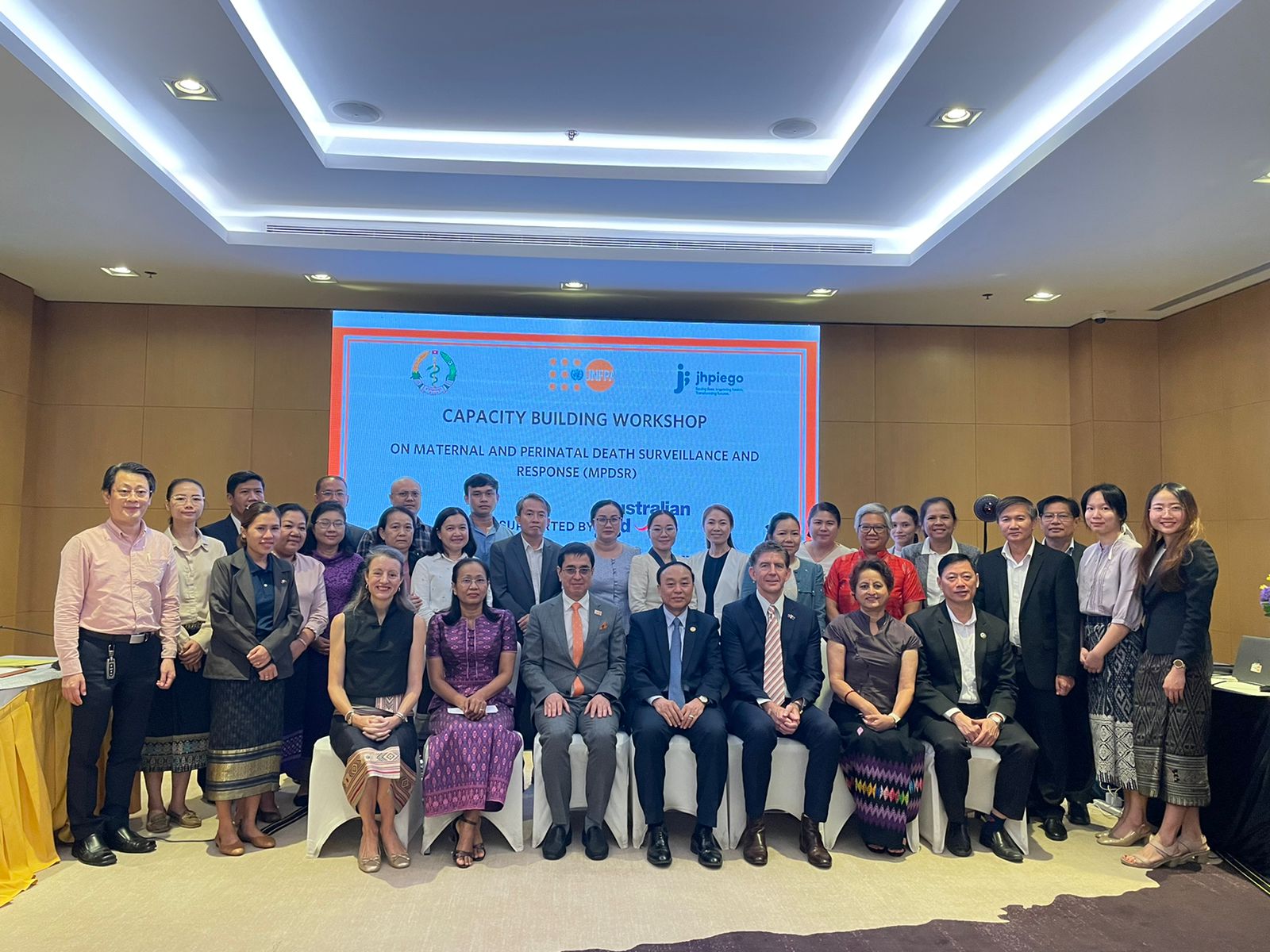
The workshop held at Crowne Plaza in Vientiane was officially opened by Dr. Bounfeng Phoummalaysith, Health Minister, with Dr. Bakhtiyor Kadyrov, UNFPA Representative and Mr. Dan Heldon, Deputy Ambassador of Australia.
“Every preventable maternal death avoided is a victory to all of us. Every life matters. This is Laos’s commitment through the National Reproductive, Maternal, Newborn, Child and Adolescent Health (RMNCAH). The Ministry of Health in collaboration with UNFPA in particular, strengthen systems, support availability and quality of health services and facilities, and train skilled healthcare staff to ensure a fast move that aims to ensure every woman gets access to quality, timely and available information and care”, said Dr. Bounfeng Phoummalaysith, Health Minister.
Making motherhood safe is a top priority for UNFPA and is part of the commitment of Lao PDR to the International Conference on Population and Development (ICPD25) which aims to end maternal mortality by 2030.
Maternal and Perinatal Death Surveillance and Response systems help advance this goal. The data collection and review system aims to report, review, and respond to each maternal death with concrete actions to prevent future deaths.
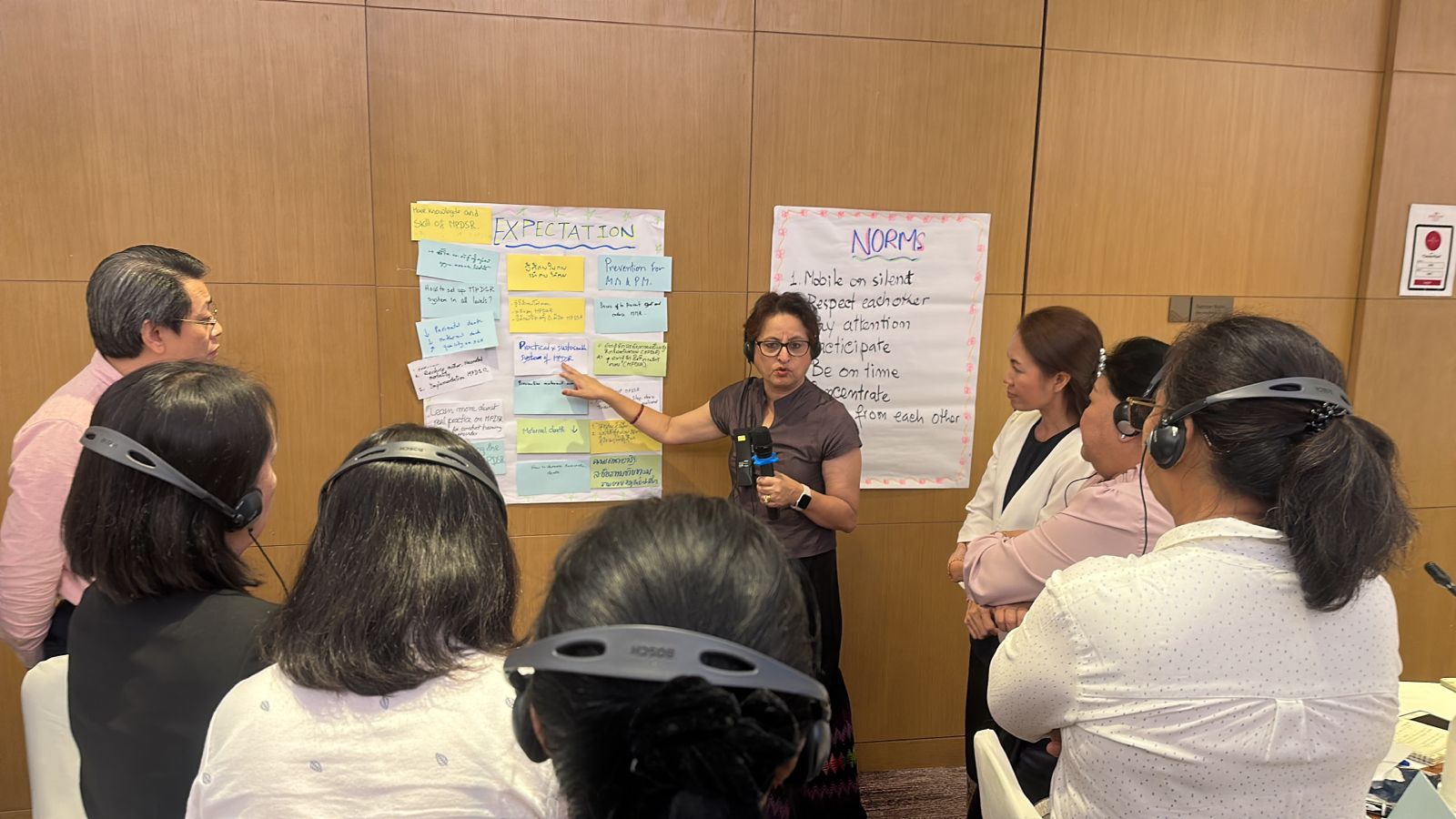
Furthermore, MPDSR provides critical insights into why these deaths occur and how they can be prevented. By generating evidence-based information, MPDSR allows health systems to learn from each incident, encouraging accountability, and driving changes that improve the quality of care and ultimately reduce maternal and perinatal mortality significantly.
“Most maternal deaths are preventable if we are able to put in place a strong surveillance system to conduct reviews and provide indications and suggestions on practical ways of ensuring access to quality emergency obstetric and neonatal care, a referral system; access to skilled health attendants during the time of birth; access to voluntary family planning; and antenatal and postnatal care. In this respect, MPDSR serves as a solid surveillance system and quality improvement mechanism within the healthcare system to reduce maternal and newborn mortality and stillbirths”. said Dr Bakhtiyor Kadyrov, UNFPA Representative to Lao PDR. Dr Bakhtiyor Kadyrov further noted that “maternal mortality and morbidity reduce the number of healthy years of life expectancy, resulting in lost lifetime earnings and savings by society. Studies have found that ill-health among women reduced productivity of the female labour force. Thus, the economic impact of poor health of mothers on families and society is multifaceted, and investment in the health of mothers is an investment in socio-economic development.”
Within the context of MPDSR improvement, UNFPA has worked on strengthening MPDSR systems as part of another regional programme on “Strengthening Data and Accountability Systems for Advocacy and Action on Sexual and Reproductive Health”,funded by the Australian Government. Mr Dan Heldon, Deputy Ambassador of Australia said, “Ensuring women and girls have access to essential maternal and sexual and reproductive health services is a key priority for the Australian Government. Australia is pleased to partner with the Ministry of Health in Lao PDR and UNFPA to work on strengthening data and accountability systems in efforts to end all preventable maternal deaths in Laos.”
In the upcoming months, UNFPA will support the Ministry of Health to roll out training across the country so that districts and provincial hospitals can conduct their own maternal death reviews to inform response plans, with subsequent implementation.
***
UNFPA, the United Nations Sexual and reproductive health agency, works in over 150 countries, including Lao PDR, to achieve zero maternal deaths, zero unmet family planning needs, and zero gender-based violence.
For more information, please contact:

